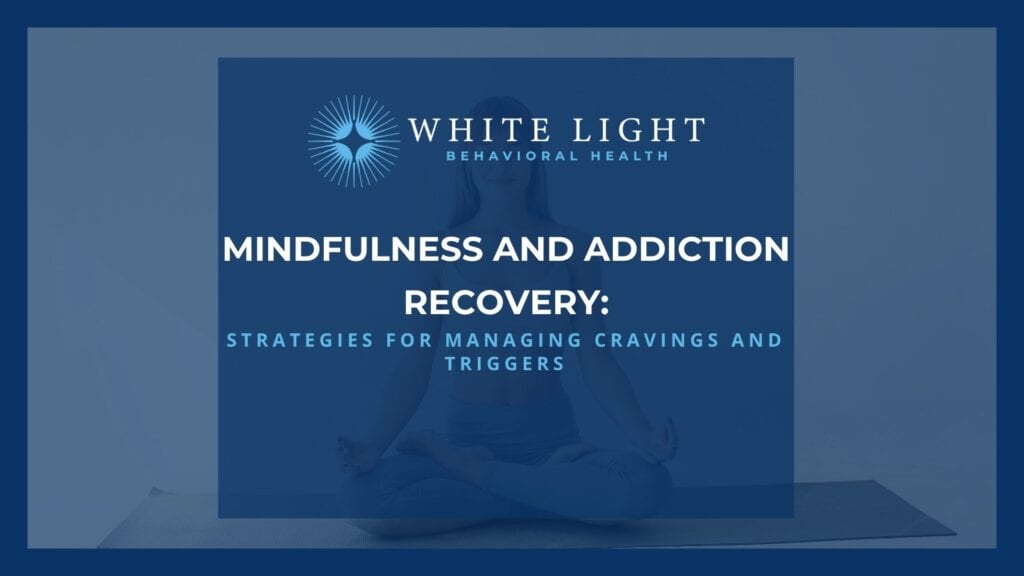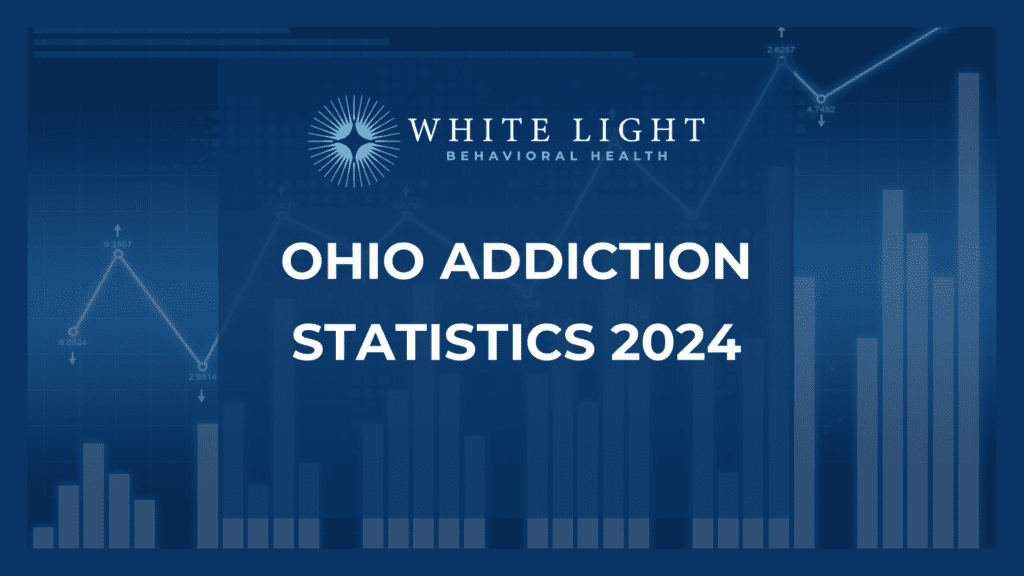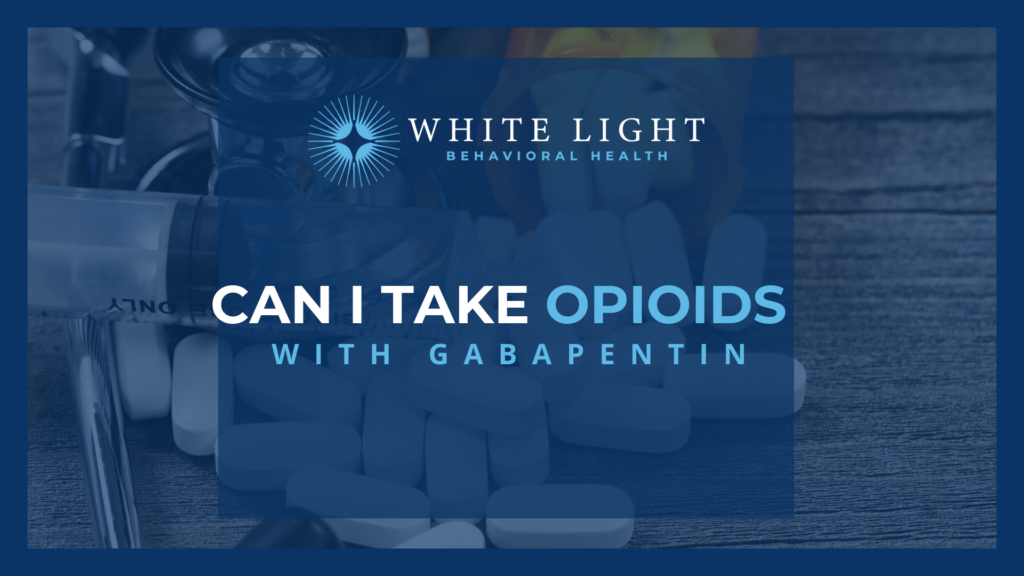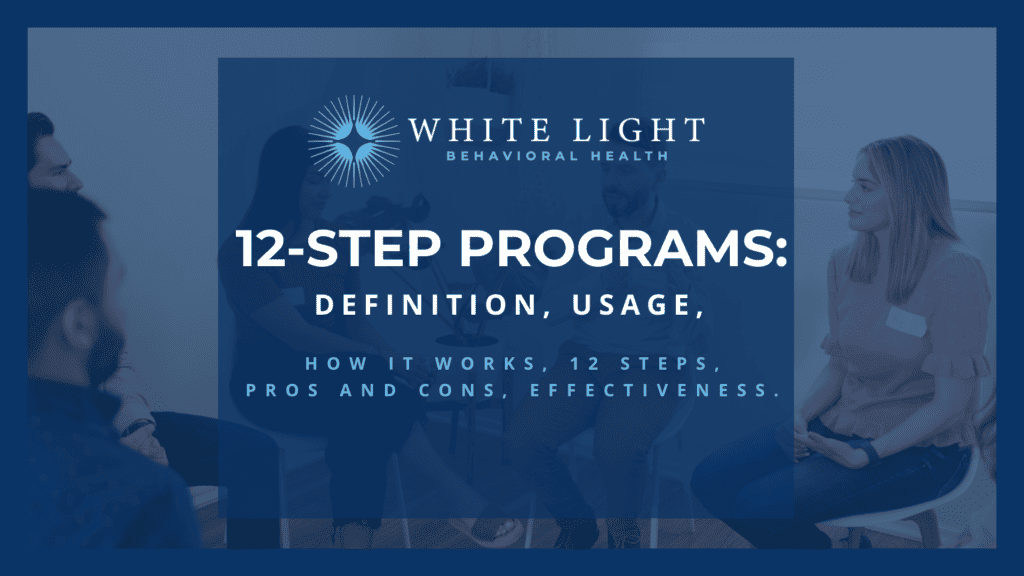Dealing with an addiction can be challenging, as cravings and triggers can make it difficult to stay on track. However, did you know that there is a way to manage them? Mindfulness is a popular method for managing stress and can be just as beneficial for addiction recovery. In this article, we are providing tips for using mindfulness to help with your journey to recovery and suggesting strategies for managing cravings and triggers more effectively. You don’t have to go through this alone; support is available, so you can start improving your life now. Let us show you how mindfulness techniques can assist you in achieving a healthier lifestyle.
What Is Mindfulness?
Mindfulness is a concept that emphasizes the present moment and uses awareness and acceptance of your body, thoughts, and feelings to allow you to create a healthier relationship with yourself and your environment. In addiction recovery, mindfulness can be essential, as it can be used to help manage cravings and triggers.
Mindfulness is about neutrally observing your thoughts and emotions instead of getting swept up. It encourages an attitude of non-judgemental self-awareness and acceptance, which can positively affect emotional well-being. Practicing mindfulness techniques helps to cultivate conscious awareness of the present moment rather than ruminating on the past or worrying about the future. When mindful, you become aware of internal (thoughts & feelings) and external (environmental) stimuli without judgment or reactivity. This can be an invaluable tool for managing cravings & triggers associated with addiction recovery, allowing participants to respond healthier.
Definition of Cravings and Triggers
A craving is a powerful urge for something, like food, sex, drugs, or alcohol. It’s when you want something and can’t stop thinking about it. You might actively try to get it, feel the need for it when it’s available, or want it for the good feelings it brings. Samuel Asensio’s study from 2020, found on the National Library of Medicine, suggests that cravings are highly personal and can vary from person to person.
Triggers spark cravings and can be people, places, and things associated with drug use – most triggers usually touch on multiple categories, causing strong cravings.
The Role of Mindfulness in Addiction Recovery
Learning to be mindful can greatly benefit addiction recovery. Mindfulness means focusing on the present and being aware of your thoughts and feelings without judgment. It can be used to deal with cravings, triggers, and stress. Recognizing when a craving or trigger will lead to a setback is the first step; mindfulness allows you to take action before it’s too late. Next, acknowledge cravings without judging yourself, understanding that they are just fleeting emotions you can let go of without giving in. Finally, be mindful of how activities or conversations around you may influence your decisions.
Mindful Breathing to Reduce Cravings & Triggers
Mindful breathing is the most effective mindfulness tool for managing cravings and triggers. It can help reduce stress, making a craving or trigger seem worse. Additionally, mindful breathing brings awareness and clarity to what’s happening in the present moment. To practice mindful breathing, concentrate on your breath – notice as you inhale and exhale through your nose. Count each breath from one to five, then start again. Not sure if you’re doing it right? Here are some suggestions:
- Inhale through your nose and exhale through your mouth.
- Focus on each inhale and exhale, counting up to five; start at one with each breath
- Try extending the exhalation by a couple of counts longer than the inhalation
- Keep your attention on taking slow, steady breaths without trying to change them
- When you notice yourself drifting off focus, bring yourself back again with some gentle self-compassion
By cultivating your awareness of breath while actively noticing your cravings and triggers, you can gain insight into how intense they are and whether they may be manageable or need further attention from a health professional. This approach can help build resilience in managing cravings and triggers that arise during addiction recovery over time.
Mindful Eating to Reduce Cravings & Triggers
Have you ever been in a situation where you were about to reach for a snack, even though you weren’t that hungry? This can often be the case when we’re trying to stay away from triggers and cravings. Understanding mindful eating can help us better manage our addiction recovery and prevent us from falling into old, consuming habits.
What Is Mindful Eating?
Mindful eating is a practice that helps us become aware of what we’re choosing to eat and why. It allows us to savor our food which, in turn, helps us understand our hunger cues and recognize unhealthy patterns that can lead to cravings.
How Does It Help With Addiction Recovery?
Mindful eating helps us become more conscious of what we put in our bodies and how it affects our overall well-being. It also allows us to recognize emotional triggers that lead us to unhealthy behavior patterns, such as overeating or feeling discouraged by setbacks.
The key is being aware of those moments when we are tempted by unhealthy behaviors and being able to stop them before they begin. This can include:
- Being aware of why you are reaching for food and honoring internal hunger cues
- Eating slowly while paying attention to tastes, flavors, and textures
- Eating without distractions such as TV or smartphones
- Take your time with meals – stop eating when you start feeling full
Mindful Movement to Reduce Cravings & Triggers
The benefits of mindful movement are many: when your body is in motion, your brain is more likely to be calm and focused on what’s happening around you. This will help you recognize when cravings or triggers creep up on you. In addition, physical activity increases your serotonin and dopamine levels, positively impacting your mood and reducing stress levels.
How To Do Mindful Movement
Mindful movement can get your body moving – it doesn’t have to be a full-blown exercise routine (although they can help, too!). Here are some simple mindful movements that can help reduce cravings and triggers:
- Taking a short walk outside
- Doing some stretching
- Focusing on deep breathing exercises
- Participating in yoga or tai chi
- Going for a bike ride or swim
Try doing some mindful movement when you start to feel those cravings or triggers creeping up on you – it will help keep your mind clear and focused, allowing you to make healthier decisions.
Other Practices to Support Addiction Recovery Through Mindfulness
Making mindfulness a part of your recovery plan doesn’t have to be complicated. According to a study by Elizabeth Ginexi at the National Center for Complementary and Integrative Health in 2020, here are simple practices that may help manage cravings and triggers, such as :
Art-Making
Using creative expression through art-making is another powerful way to practice mindfulness. This can be drawing, doodling, painting, or any activity that allows you to express yourself freely. Allowing yourself this freedom helps manage cravings and offers a break from stress and anxiety. Plus, if creating something makes you feel better, you can even display the artwork in your home as a reminder that you successfully manage cravings!
Deep Breathing Exercises
A lot has been said about deep breathing exercises’ power to manage stress levels. It’s good practice to take a few minutes out of each day for mindful breathing—a great way is by finding a comfortable spot (either inside or outdoors) and taking long deep breaths while focusing on the present moment—the sights around you, smells in the air and sounds nearby.
Journaling
Journaling is a great way to connect with your feelings and thoughts. It doesn’t have to be complicated. Just take a few minutes each day to write down your feelings. As days go by, you will gain insight into yourself and how certain occurrences can create triggers and urges related to substance use.
Conclusion
To sum up, mindfulness and addiction recovery are not mutually exclusive. Mindfulness is an invaluable tool that can aid in managing triggers and cravings in recovery and enhancing other therapeutic approaches like cognitive-behavioral therapy. It can help individuals to develop better strategies for managing difficult emotions and desires.
Although mindfulness cannot magically cure addiction, it is a powerful method for better understanding one’s thoughts, feelings, and behavior to make informed decisions, leading to increased chances of long-term sobriety.
For more information on Strategies for Managing Cravings and Triggers, don’t hesitate to contact White Light Behavioral Health today!
What are some common triggers for addiction cravings?
Triggers for addiction cravings can vary greatly depending on the individual and their specific addiction. However, common triggers include stress, certain environments or social situations, specific people, negative emotions such as sadness or anger, and exposure to drugs or alcohol. It’s important to identify these triggers and develop coping strategies to manage cravings effectively.
How does mindfulness help in addiction recovery?
Mindfulness can be a powerful tool in addiction recovery as it helps individuals become more aware of their thoughts, feelings, and bodily sensations without judgment. By practicing mindfulness techniques such as meditation, deep breathing, and body scans, individuals can learn to observe their cravings and triggers without automatically reacting to them. This increased awareness can empower them to make healthier choices and resist the urge to relapse.
How can mindfulness help improve overall mental health in addiction recovery?
Mindfulness can help improve overall mental health in addiction recovery by reducing symptoms of anxiety, depression, and other co-occurring disorders commonly associated with addiction. By fostering a greater sense of self-awareness and emotional regulation, mindfulness practices can enhance individuals’ ability to cope with stress and negative emotions, leading to improved mood, increased resilience, and greater overall well-being.
Can mindfulness practices be used alongside traditional addiction treatment methods?
Yes, mindfulness practices can complement traditional addiction treatment methods such as therapy, support groups, and medication. Many addiction treatment programs now incorporate mindfulness-based techniques into their approaches, recognizing the benefits of addressing both the physical and psychological aspects of addiction. By combining mindfulness with other treatments, individuals can enhance their recovery journey and improve their overall well-being.
How can mindfulness help manage stress during addiction recovery?
Mindfulness can be particularly helpful in managing stress during addiction recovery by teaching individuals to focus on the present moment and cultivate a sense of calmness and clarity. By practicing mindfulness techniques regularly, such as mindful breathing or meditation, individuals can reduce their overall stress levels and develop healthier coping mechanisms for dealing with life’s challenges without resorting to substance use.
What role does self-compassion play in addiction recovery?
Self-compassion plays a crucial role in addiction recovery by encouraging individuals to treat themselves with kindness and understanding rather than harsh self-criticism. By practicing self-compassion techniques, such as self-soothing or positive self-talk, individuals can cultivate a greater sense of acceptance and forgiveness towards themselves, which can be instrumental in overcoming feelings of shame or guilt associated with addiction.
Can mindfulness help prevent relapse in addiction recovery?
Yes, mindfulness can help prevent relapse in addiction recovery by providing individuals with the skills to recognize and manage potential triggers and cravings more effectively. By staying present and aware of their thoughts and emotions, individuals can make conscious choices to avoid situations that may lead to relapse and implement healthy coping strategies instead. Mindfulness also promotes resilience and emotional regulation, essential for maintaining long-term sobriety.
What are some practical mindfulness exercises for managing addiction cravings?
Practical mindfulness exercises for managing addiction cravings include deep breathing exercises, guided meditation sessions focused on relaxation and self-awareness, mindful eating practices, and body scans to tune into bodily sensations and emotions. These exercises can be practiced daily or whenever cravings arise to help individuals stay grounded and centered in the present moment, reducing the intensity of cravings and promoting a sense of calmness and control.
What are the warning signs of addiction, and when should someone seek help?
Warning signs of addiction can include increased tolerance to a substance, withdrawal symptoms when not using, continued use despite negative consequences, changes in behavior or mood, and neglecting responsibilities or relationships. Suppose someone is experiencing these warning signs or struggling to control their substance use. In that case, they need to seek help from a qualified healthcare professional or addiction specialist as soon as possible to prevent further harm and begin the journey to recovery.
How do I know if someone I care about is struggling with addiction, and how can I support them?
If you suspect that someone you care about is struggling with addiction, you may notice changes in their behavior, appearance, or mood, as well as signs of withdrawal or cravings. It’s important to approach the situation with empathy and compassion, expressing your concerns non-judgmentally and offering your support and encouragement. Encouraging them to seek professional help and providing resources for addiction treatment and support groups can also be beneficial in their recovery journey.

Share This Post



